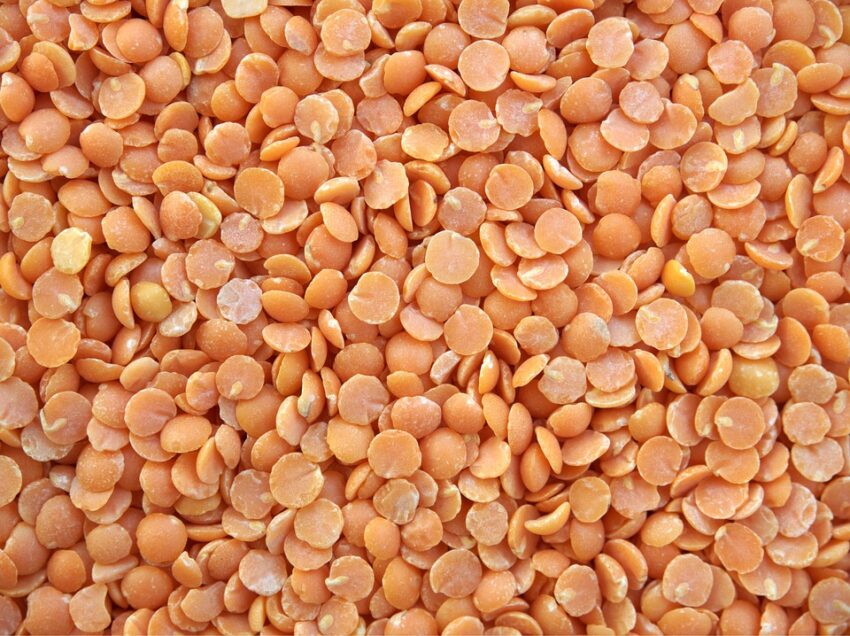Lentil Dal and Its Benefits
Lentil dal, a staple in South Asian cuisine, is a wholesome and flavorful dish made from lentils simmered with aromatic spices. Known for its comforting taste and versatility, lentil dal is not just a culinary delight but also a powerhouse of nutrients. Its simplicity and adaptability make it a favourite for millions around the world.
Nutritional Value of Lentils
Lentils are legumes, rich in essential nutrients like protein, dietary fiber, vitamins, and minerals.
A single serving (1 cup cooked lentils) provides:
Protein: Approximately 18 grams, making it an excellent plant-based protein source for vegetarians and vegans.
Fiber: Over 15 grams, aiding digestion and promoting gut health.
Iron: Lentils are packed with iron, crucial for energy production and oxygen transportation in the body.
Folate: Essential for brain function and cell production, folate is abundant in lentils.
Potassium: Helps regulate blood pressure and supports muscle function.
Low Fat: Lentils contain virtually no saturated fats, making them heart-healthy.

Health Benefits of Lentil Dal
Rich Source of Plant-Based Protein
Lentil dal is an excellent alternative to meat-based protein. For vegetarians, vegans, or those seeking to reduce meat consumption, it provides all the essential amino acids when paired with rice or bread.
Supports Heart Health
The high fiber content in lentils helps reduce bad cholesterol (LDL), thereby promoting heart health. Additionally, potassium and magnesium in lentils contribute to maintaining healthy blood pressure levels.
Promotes Digestive Health
Lentil dal is rich in both soluble and insoluble fibers. Insoluble fiber aids in preventing constipation, while soluble fiber helps in maintaining a healthy gut by feeding beneficial bacteria.
Stabilizes Blood Sugar Levels
Lentils have a low glycemic index, meaning they release sugar into the bloodstream slowly. This helps in preventing blood sugar spikes, making lentil dal a great choice for people with diabetes or those looking to regulate their sugar levels.
Boosts Energy
Iron in lentils is crucial for transporting oxygen throughout the body, which helps in energy production. This makes lentil dal a great dish for combating fatigue and low energy levels.
Weight Management
The high protein and fiber content in lentils keep you feeling full for longer, reducing the likelihood of overeating. It’s a low-calorie dish that can fit well into any weight management plan.
Bone Health
Lentils contain a good amount of calcium and magnesium, which are vital for maintaining strong bones and preventing conditions like osteoporosis.
Supports Brain Function
Folate, a type of B vitamin found in abundance in lentils, is essential for brain development and cognitive function. It’s especially important during pregnancy to support the development of the fetal brain.

How to Prepare Lentil Dal
Lentil dal is incredibly easy to prepare and can be tailored to suit your taste preferences. Here’s a simple method:
Ingredients:
Lentils (red, yellow, or green)
Water or vegetable broth
Onions, garlic, and ginger
Tomatoes
Spices: turmeric, cumin, coriander, and chili powder
Fresh cilantro and lemon juice (optional)
Steps:
Rinse the lentils thoroughly.
Simmer lentils in water or broth until soft.
Sauté onions, garlic, and ginger in oil or ghee with spices.
Add tomatoes and cook until soft.
Combine the lentils with the spice mixture and simmer for a few minutes.
Garnish with cilantro and a squeeze of lemon juice.
Conclusion
Lentil dal is a nutritious, delicious, and versatile dish that benefits your body in countless ways. Whether you’re looking to improve heart health, manage weight, or simply enjoy a comforting meal, lentil dal fits the bill. Affordable, easy to make, and rich in essential nutrients, it’s a must-have addition to your regular diet. Serve it with rice, flatbreads, or enjoy it on its own—lentil dal is a true testament to the saying, “Food is medicine.”

